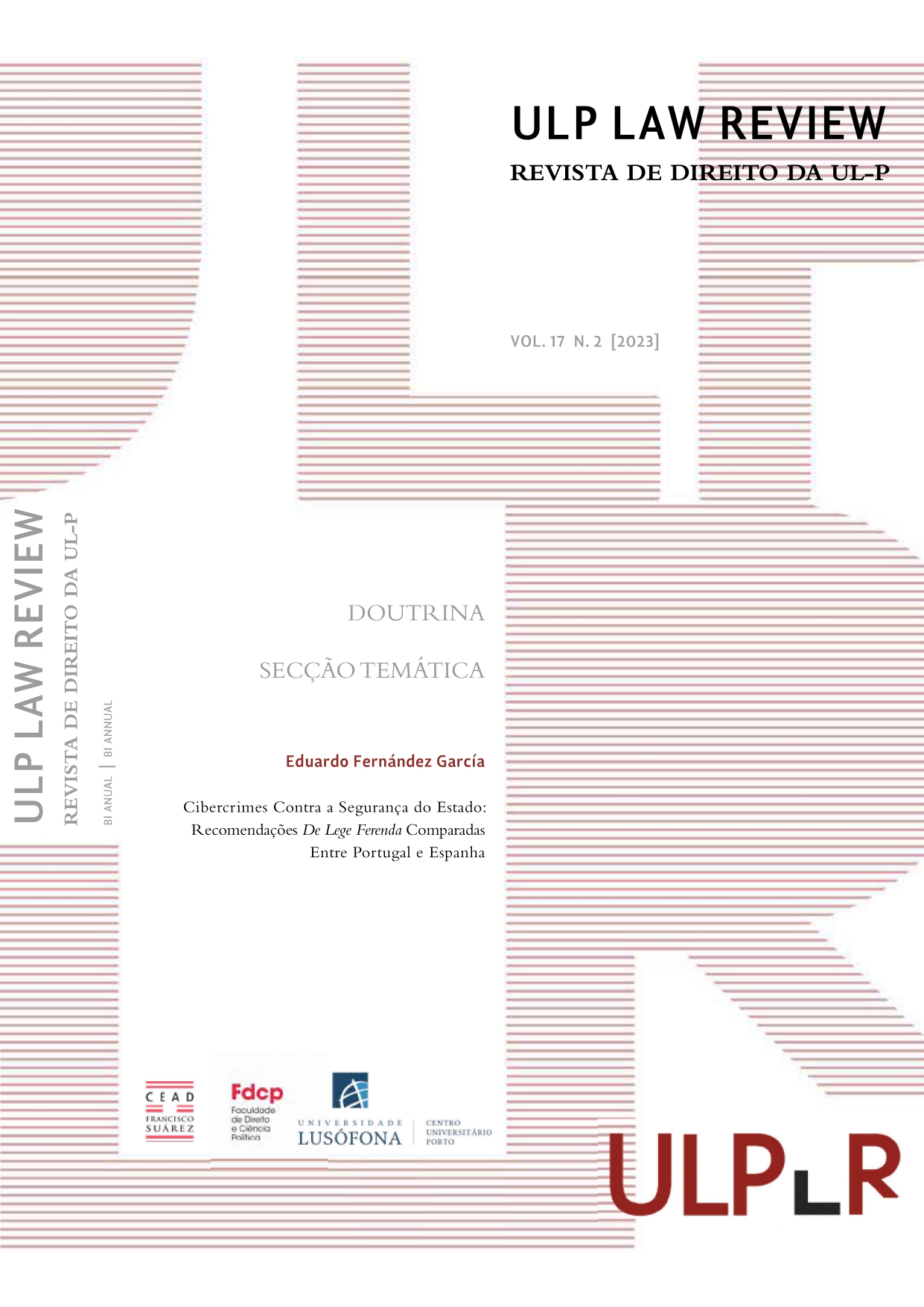Cybercrimes Against National Security: Lege Ferenda Recommendations Compared Between Portugal and Spain
Abstract
Current Portuguese and Spanish societies are characterized by profound hyperconnectivity. They must face the increase in risks and threats that loom over public safety and national security in the transition from the physical to the logical world. Cyberspace has become an object of study of Law two decades ago. Cybersecurity, consequently, has been partially regulated by administrative regulations, but some constitutional implications seem to have extraordinary importance, which contrasts with the immutability of criminal laws. Although public planning has improved significantly in both countries, a critical glance at current positive penal regulations yields highly unsatisfactory results. An interdisciplinarity methodology is proposed for situation analysis and a set of legislative proposals, as the obsolescence of the literal content of some articles written before the existence of technological means reveals a notorious increase in social vulnerability, which requires an update to incorporate significant changes in the classification of punishable conduct and in the modulation of authorship and participation. The particular protective nature of Criminal Law and the relevance of its legal responses requires to resist the demands from technical sectors that imply greater punitive populism.
Downloads

Copyright (c) 2024 UL-P Law Review - Revista de Direito da UL-P

This work is licensed under a Creative Commons Attribution-NonCommercial 4.0 International License.
Direitos de Autor (c) 2024 - Revista de direito da ULP

This work is licensed under a Creative Commons Attribution-NonCommercial 4.0 International License.






